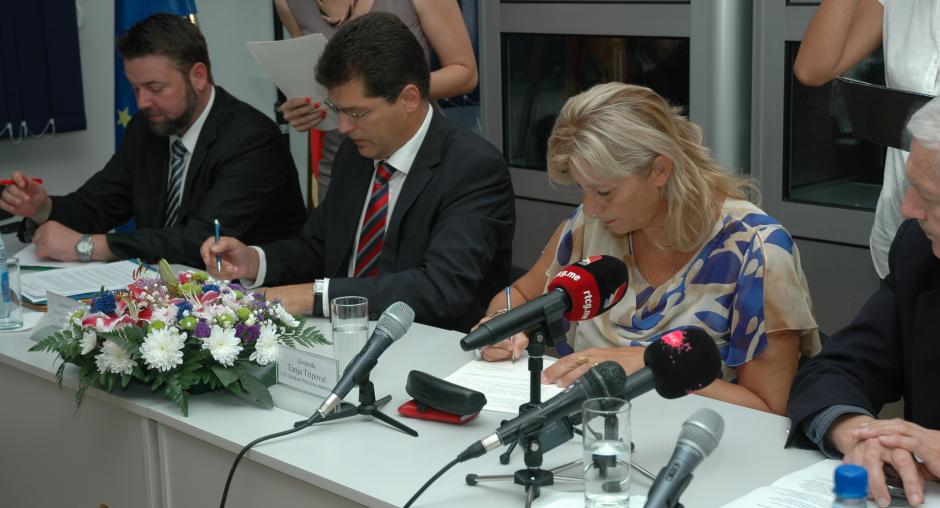ODIHR signs agreement to provide hate crime training for Montenegrin police

The OSCE Office for Democratic Institutions and Human Rights (ODIHR) signed an agreement with the Montenegrin authorities on 29 August 2013 to provide training to Montenegrin law-enforcement officers in recognizing, understanding and investigating hate crimes.
The agreement to implement ODIHR’s “Training Against Hate Crimes for Law Enforcement” (TAHCLE) programme was signed in Danilovgrad, at the Police Academy of Montenegro, by Tanja Tripović, the Academy’s Acting Director, and Ambassador Janez Lenarčič, the Director of ODIHR. The programme will be implemented in close co-operation with the OSCE Mission to Montenegro.
Tripović pointed out that every year, the Police Academy incorporates a new topic into its education and training curriculum. “The signing of the memorandum of understanding today marks our first step in educating and training police officers on how to prevent and combat hate crimes,” she said.
Lenarčič commended the Montenegrin authorities for implementing the TAHCLE programme as part of their commitment to fight intolerance and hate-motivated crimes. “When hate crimes occur, police officers have to have the skills to ensure that they are properly investigated and that victims of these crimes receive support,” he said. “This programme was developed specifically to provide police officers with those skills.”
Waldemar Figaj, the Acting Head of the OSCE Mission to Montenegro, welcomed the agreement as a strong example of the OSCE’s work as a security organization. “Hate crimes and intolerance motivated by prejudice and bias are threats to cohesion within societies and, as a result, to their security,” Figaj said. “Providing security is at the very heart of police work, and training to address hate crimes can only make police officers more effective.”
The TAHCLE programme, launched in 2011, provides tailor-made training for law enforcement officers. Montenegro will be the sixth OSCE participating State in which the programme is being implemented, following Bulgaria, Croatia, Italy, Poland and Ukraine.
